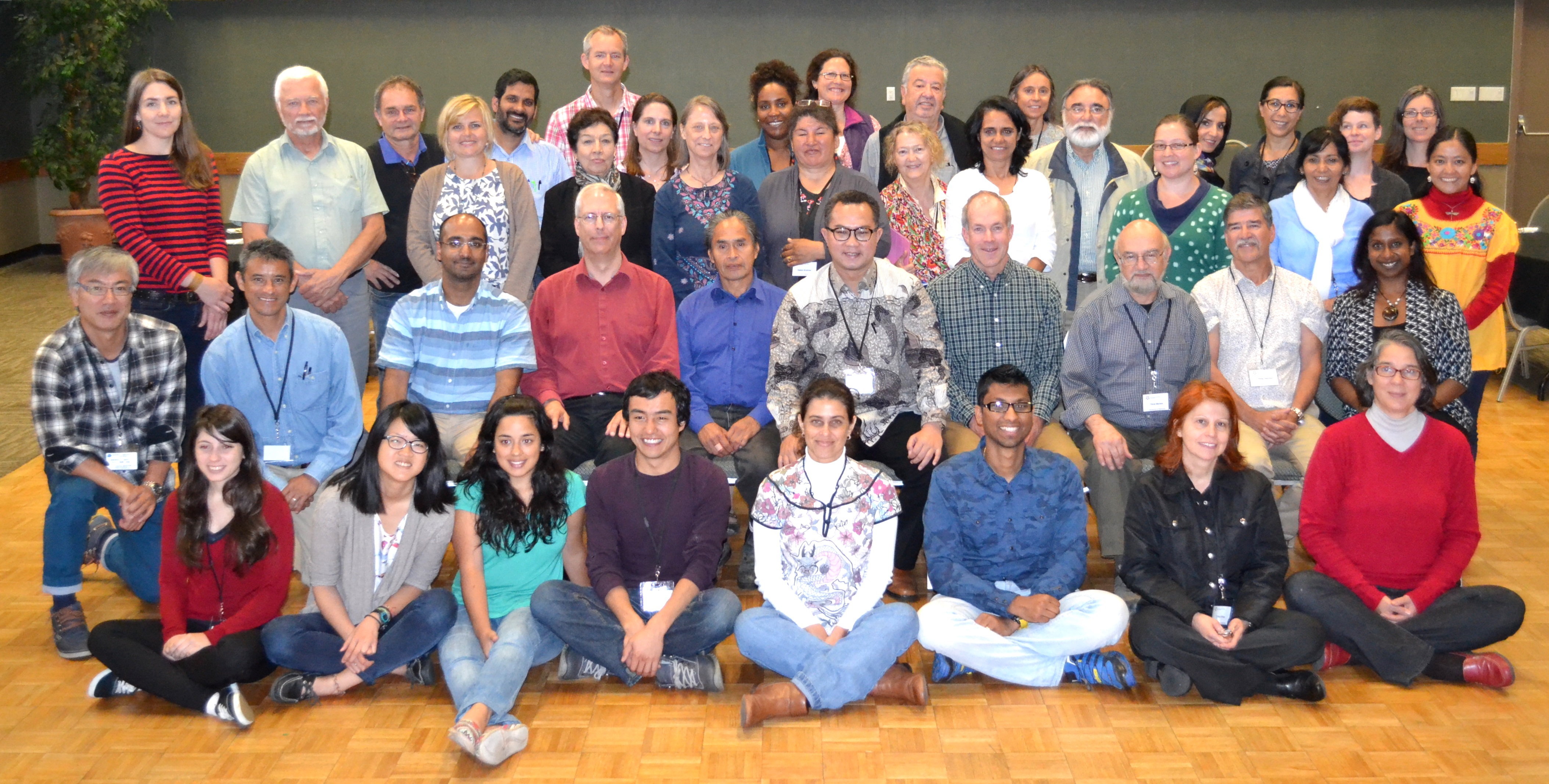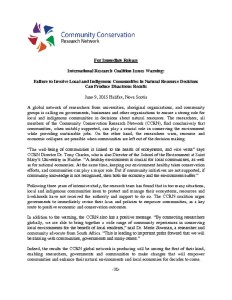
09 Jun International Research Coalition Issues Warning:
A global network of researchers from universities, aboriginal organizations, and community groups is calling on governments, businesses and other organizations to ensure a strong role for local and indigenous communities in decisions about natural resources. The researchers, all members of the Community Conservation Research Network (CCRN), find conclusively that communities, when suitably supported, can play a crucial role in conserving the environment while providing sustainable jobs. On the other hand, the researchers warn, resource and economic collapses are possible when communities are left out of the decision making.
“The well-being of communities is linked to the health of ecosystems, and vice versa” says CCRN Director Dr. Tony Charles, who is also Director of the School of the Environment at Saint Mary’s University in Halifax. “A healthy environment is crucial for local communities, as well as for national economies. At the same time, keeping our environment healthy takes conservation efforts, and communities can play a major role. But if community initiatives are not supported, if community knowledge is not recognized, then both the economy and the environment suffer.”
Following three years of intensive study, the research team has found that in too many situations, local and indigenous communities keen to protect and manage their ecosystems, resources and livelihoods have not received the authority and support to do so. The CCRN coalition urges governments to immediately revise their laws and policies to empower communities, as a key route to positive economic and conservation outcomes.
In addition to the warning, the CCRN also has a positive message. “By connecting researchers globally, we are able to bring together a wide range of community experiences in conserving local environments for the benefit of local residents,” said Dr. Merle Sowman, a researcher and community advocate from South Africa. “This is leading to important paths forward that we will be sharing with communities, governments and many others.”
Indeed, the results the CCRN global network is producing will be among the first of their kind, enabling researchers, governments and communities to make changes that will empower communities and enhance their natural environments and local economies for decades to come.
Key Messages from the Community Conservation Research Network
- Appropriate environmental conservation and management practices must draw on the deep knowledge of local and indigenous communities, which have lived with and depended on local resources for generations.
- Community-based conservation and management practices are essential to the livelihoods of local and indigenous people, and contribute significantly to sustainable local, regional and national economies.
- Active and meaningful engagement of local communities and indigenous rights-holders in resource decision-making and monitoring leads to improved conservation and management practices. Conversely, excluding local and indigenous communities from resource decision-making increases the likelihood of conflict, unsustainable management practices, and resource decline.
- When governments, businesses and other organizations build lasting and respectful partnerships with local communities, this enhances understanding of the issues and leads to decisions that are more likely to be implemented and to produce effective conservation and livelihood outcomes.
- Building the capacity of community members, researchers, and government managers to tackle complex problems leads to empowered communities, improved joint problem solving, sustainable livelihoods and more effective conservation.



